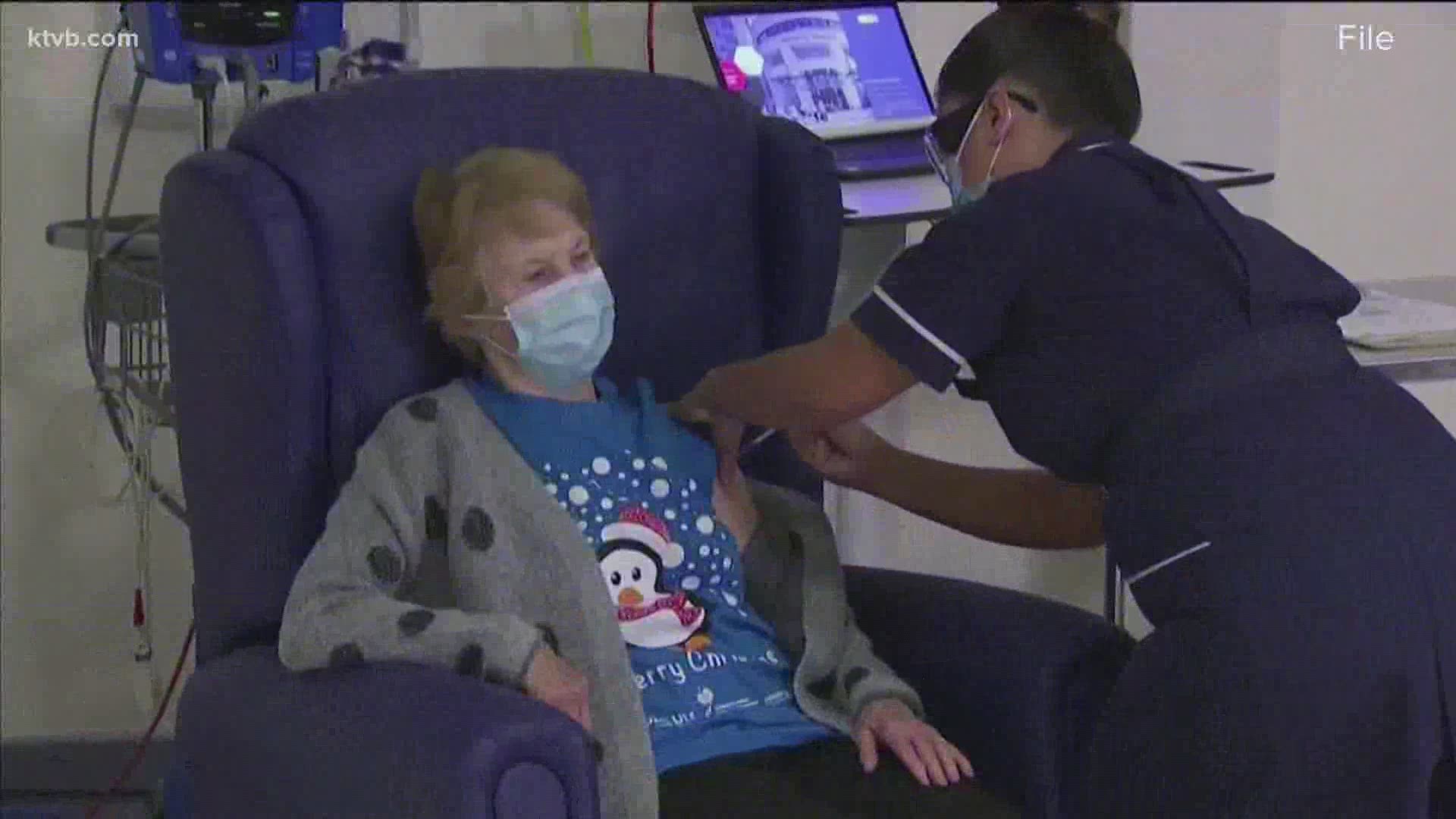BOISE, Idaho — On Tuesday, the Idaho Division of Public Health announced that two Idaho healthcare workers experienced allergic reactions to Pfizer's COVID-19 vaccine. Both healthcare workers had a history of allergic reactions to injectable medication.
Dr. David Pate, a member of Idaho's Coronavirus Task Force and the retired CEO of St. Luke's, said allergic reactions to the COVID-19 vaccine aren't common and happens with people who have underlying health issues.
"This is certainly not common, it's enough that we want to take it seriously," he told KTVB on Wednesday. "Each of these people had an underlying reason to be concerned they most often have a history of having anaphylaxis to an injectable of some sort or a prior vaccine."
He also explained that allergic reactions typically develop within ten minutes.
"You are going to feel a sense of dread, a sense of doom, something is definitely very wrong some people will have a rapid heart rate. Some people will feel very light-headed like they're going to pass out. Some people will break out in a sweat," he said.
Other symptoms may include swelling of the lips or tongue, burning sensations on the skin and feeling flushed.
People without any prior history of allergic reactions will be observed for 15 minutes after the vaccine is administered. At-risk patients will be observed for 30 minutes.
Those who do experience an allergic reaction to the first dose of the COVID-19 vaccine will also be at high risk during the second shot, Dr. Pate explained.
He believes by the time at-risk patients are given the second shot there will be pre-treatment recommendations.
Until then, Dr. Pate said health experts will now try to find out what caused the reactions.
"There are now studies underway to figure out, what are people reacting to because it's not likely that they are reacting to the mRNA that makes up these vaccines, its likely something added into the vaccine to help stabilize it," he said.
Ongoing studies are comparing the ingredients in the Moderna vaccine to the Pfizer vaccine.
Dr. Pate said because there have been no allergic reactions to the Moderna vaccine as of Wednesday, comparing the two's ingredients will help scientists find the culprit.
While health experts continue their investigation to what caused the allergic reactions, Dr. Pate said they are extremely uncommon and the benefits of the vaccine outweigh the risks.
"Whatever you have been complaining about it's time to roll up your sleeve," he said. "If you want to change this and you want to get rid of those restrictions, then you need to get the vaccine."

